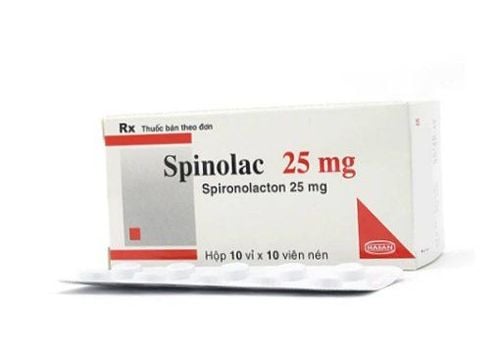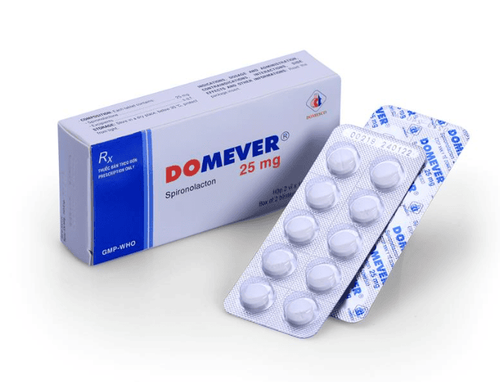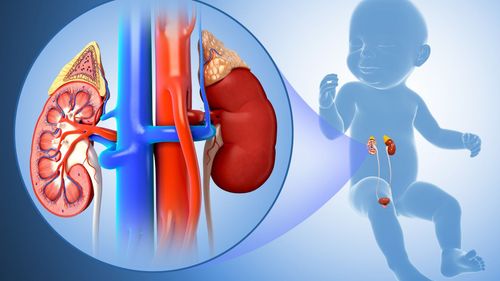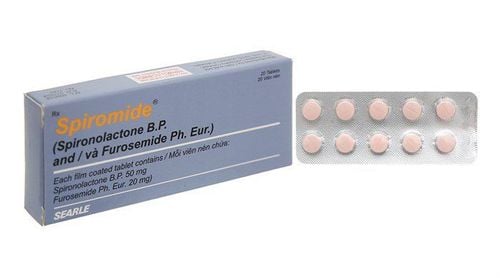This is an automatically translated article.
Normal urine contains a small amount of protein. Proteinuria is a condition that occurs when larger than normal amounts of protein appear in the urine. Although proteinuria can occasionally be seen in otherwise healthy individuals, the determination of proteinuria in the diagnosis of urinary tract disorders is still essential.
1. What is proteinuria?
Proteinuria, also known as albuminuria, is when there is an elevated amount of protein in the urine. The condition itself is not a disease but rather a symptom of urinary tract diseases.
Normally, urine has no or very little protein at all. If there is too much protein in the urine this means that the kidneys' filtering organs - the glomeruli - are not working properly and are allowing too much protein to pass out in the urine. When the glomeruli are damaged, seen in acute glomerulonephritis or nephrotic syndrome, protein molecules in the blood will be released massively through the urine. Besides, other conditions can also lead to glomerular damage, including hypertension, cardiovascular disease, and diabetes.
2. What causes proteinuria?
The kidney's role is as an organ that filters wastes out of the blood while keeping what the body needs - including protein. However, some urological diseases cause the loss of protein to pass through the kidney's filter, causing protein in the urine. Causes that can cause a temporary increase in protein levels in the urine but are not necessarily a sign of kidney damage include:Dehydration Emotional stress Exposure to cold temperatures Fever Physical labor force

Lao động thể lực có thể gây ra sự gia tăng tạm thời nồng độ protein trong nước tiểu
However, with diseases or conditions that can cause persistently high levels of protein in the urine, it should become a sign of urinary kidney disease, namely:
Amyloidosis – a buildup of abnormal proteins often in many different organs of the body Taking certain medications, such as nonsteroidal anti-inflammatory drugs, Chronic kidney disease, Diabetes, Infectious endocarditis, Focal glomerulosclerosis, Acute glomerulonephritis, Cardiovascular disease atherosclerotic heart failure Hypertension Hodgkin lymphoma IgA nephropathy (or Berger's disease) - nephritis due to accumulation of antibody-A immune globulin Kidney infection - pyelonephritis Lupus Malaria Multiple myeloma Syndrome nephrosis - damage to the microvasculature in the glomeruli Orthostatic proteinuria - increased protein levels in the urine with an upright position Pre-eclampsia Pregnancy Rheumatoid arthritis Sarcoidosis - increased inflammatory cells in the body Sickle cell anemia

Phụ nữ trong giai đoạn mang thai có thể khiến lượng protein trong nước tiểu tăng cao liên tục
3. What are the signs and symptoms of proteinuria?
In most cases, there are no symptoms related to proteinuria, especially when it is mild. Lab tests are the only way to know for sure if a person has protein in their urine. Accordingly, routine urinalysis is recommended for those at risk of chronic kidney disease and at high risk of experiencing proteinuria.
However, as the amount of protein increases in the urine, the person may have the following signs and symptoms:
Cloudy or foamy urine. A significant loss of protein in the blood can affect the body's ability to regulate fluids, causing swelling in the hands, feet, abdomen, and face.
4. How to test to determine proteinuria in the diagnosis of urinary kidney diseases
The goals of proteinuria testing include screening people who may be at risk, detecting disease conditions, determining the underlying cause of proteinuria, assessing the type and amount of protein excreted, and evaluating renal function .
Once proteinuria has been detected, the person will be monitored regularly over time to see if the condition resolves on its own or gets worse. At this time, both urine and blood tests are ordered to evaluate proteinuria.
Tests to help check for proteinuria may be done as part of a routine physical exam or as one of the tests if you are at risk for proteinuria. Some of the screening tests for proteinuria include:
Proteinuria - detects the presence of any protein that may be present in the urine. This test may be done alone on a random urine sample or as part of a general urinalysis.
Urinalysis - evaluates a urine sample for a number of different substances that may be present in the urine, including proteins. This may be one of the general health checkup tests.
Urine albumin (microalbumin) - a fairly sensitive test used to monitor kidney complications in diabetes to find small amounts of albumin, the main protein in the blood, present in the urine. Over time, diabetes can start to affect kidney function, and this test is an early sign that diabetes has caused some complications of kidney damage. People diagnosed with type 2 diabetes are advised to have their urine microalbumin checked annually, and people with type 1 diabetes should be tested 5 years after diagnosis and also every year after that.
When one of the screening results is positive, the next step is to determine the amount and type of protein excreted in the urine:
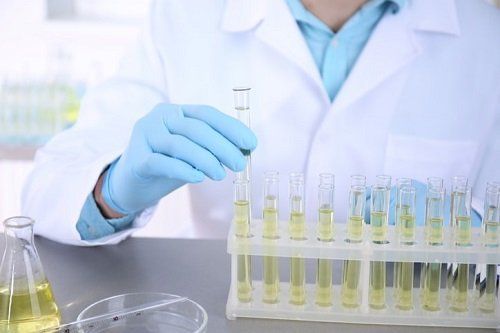
Đánh giá mẫu nước tiểu bằng xét nghiệm phân tích nước tiểu
24-hour urine albumin - measures the amount of albumin, which is a major protein, released into the urine during a 24-hour follow-up period. This test can help your healthcare provider better assess the extent of kidney damage.
Urine albumin/creatinine ratio - as an alternative to collecting a 24-hour urine sample, a random urine sample (not timed) can be used. In this test, creatinine is also measured. This is a waste product that is passed into the urine at a steady rate. When both protein and creatinine are measured in a random sample, the urinary albumin/creatinine ratio can be calculated, which more accurately reflects the amount of albumin that has been lost in the urine.
24-hour proteinuria quantification - measures all proteins excreted in the urine over a 24-hour period. This is a more accurate assessment of proteinuria than a random urine test.
Urine protein/creatinine ratio - simultaneous measurement of protein and creatinine in a random urine sample and correction for creatinine, similar to urine albumin/creatinine ratio.
Urine protein electrophoresis - a test used to determine the different types and relative concentrations of proteins present in the urine. This test is commonly used to detect the presence of Bence-Jones protein when multiple myeloma is suspected.
5. How is proteinuria treated?
Because proteinuria is not an isolated disease, it can be a manifestation of any disease that causes damage to the glomerular membrane, causing protein in the blood to be lost in the urine. Therefore, the treatment of proteinuria should be targeted as the ability to control the etiology.
Accordingly, if you have diabetes or high blood pressure, the first and second most common causes of kidney disease, it is important to ensure that these conditions are controlled through blood glucose readings. and blood pressure, with drugs that have been shown to have a protective effect on the kidneys. With diabetes specifically, managing this condition means being able to proactively check blood sugar levels on a regular basis, take medications as directed by your doctor, and follow a healthy eating plan. Drink healthy and exercise. If you have high blood pressure, your doctor may prescribe medication to help lower your blood pressure and protect your kidneys from further damage. Medicines that can both stabilize blood pressure and improve proteinuria are called ACE inhibitors and angiotensin receptor blockers.

Kiểm tra sức khỏe định kỳ giúp người bệnh được phát hiện và điều trị bệnh lý kịp thời
Conversely, if a person has protein in the urine but doesn't have diabetes or high blood pressure, the doctor may be more inclined to diagnose kidney problems such as acute glomerulonephritis, nephrotic syndrome. broken . Even so, drugs that belong to the class of ACE inhibitors or angiotensin receptor blockers can still help protect the kidneys from further damage. However, it is still important to find the exact cause of the disease in order to have sustainable control, not only of proteinuria but also of kidney function in the long term.
In summary, proteinuria is just one manifestation, which can be caused by physiological changes or urinary nephropathy. Blood and urine tests, including 24-hour proteinuria, help identify and extent this condition. From there, patients need to be prescribed drugs that both help control the etiology effectively, and indirectly protect the kidneys, and improve proteinuria.
For consultation and examination at Vinmec medical system nationwide, please register at the Website for the best service.
Please dial HOTLINE for more information or register for an appointment HERE. Download MyVinmec app to make appointments faster and to manage your bookings easily.




